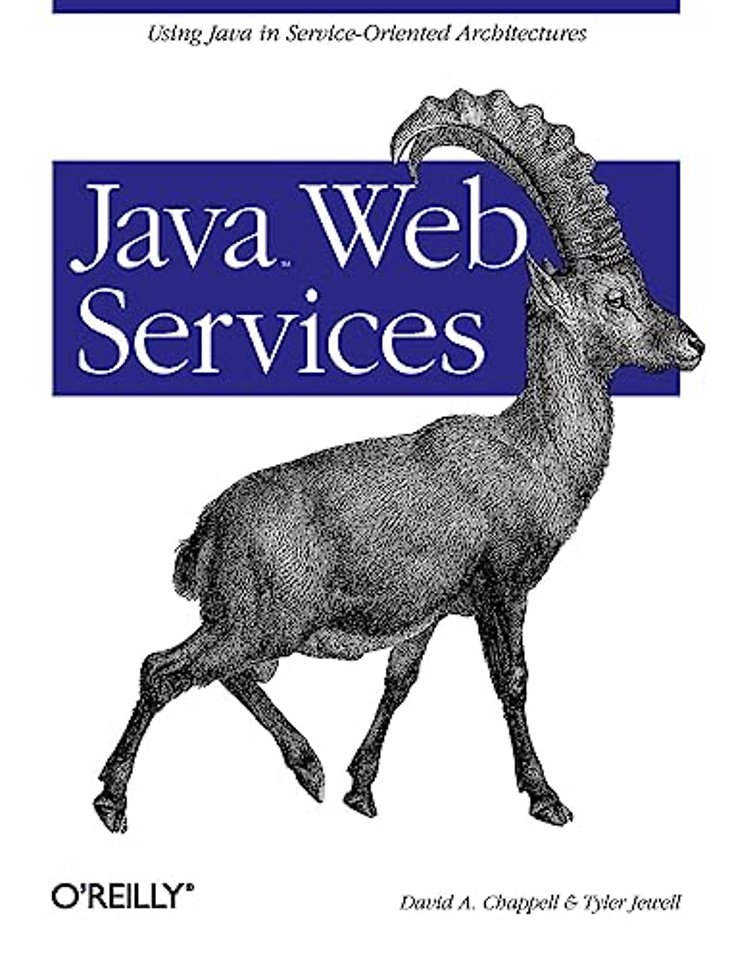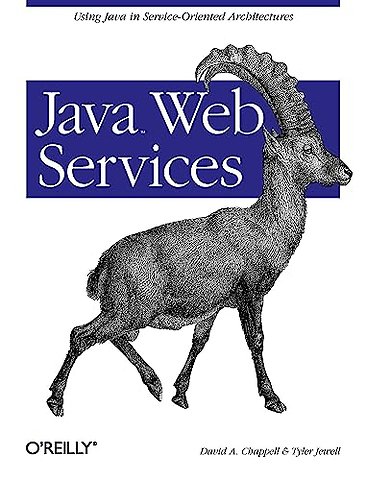Java Web Services
Paperback Engels 2002 9780596002695Samenvatting
For many Java developers, web services appeared to come out of nowhere. Its advantages are clear: web services are platform-independent (like Java itself), language-agnostic (a clear advantage over Java RMI), can easily be tunneled through firewalls (an obvious benefit to anyone who has dealt with modern enterprise networks), object-oriented (we all know about that), and tends to be loosely coupled (allowing more flexible application development). But these advantages have been obscured by a cloud of hype and a proliferation of jargon that are difficult to penetrate. What are SOAP, UDDI, WSDL, and JAXM To say nothing of JAXR, tModels, category bags, WSFL, and other friends And assuming that you understand what they are, how do you do anything with them Do they live up to their promises Are they really the future of network computing, or a dead endJava Web Services gives the experienced Java developer a way into the Web Services world. It helps you to understand what's going on, what the technologies mean and how they relate, and shows Java developers how to put them to use to solve real problems. You'll learn what's real and what isn't; what the technologies are really supposed to do, and how they do it. Java Web Services shows you how to use SOAP to perform remote method calls and message passing; how to use WSDL to describe the interface to a web service or understand the interface of someone else's service; and how to use UDDI to advertise (publish) and look up services in each local or global registry. Java Web Services also discusses security issues, interoperability issues, integration with other Java enterprise technologies like EJB; the work being done on the JAXM andJAX-RPC packages, and integration with Microsoft's .NET services.The web services picture is still taking shape; there are many platforms and APIs to consider, and many conflicting claims from different marketing groups. And although web services are inherently language-independent, the fit between the fundamental principles on which Java and web services are based means that Java will almost certainly be the predominant language for web services development. If you're a Java developer and want to climb on the web services bandwagon, or if you only want to "kick the tires" and find out what web services has to offer, you will find this book indispensable.
Specificaties
Lezersrecensies
Inhoudsopgave
Chapter 1: Welcome to Web Services
Chapter 2: Inside the Composite Computing Model
Chapter 3: SOAP: The Cornerstone of Interoperability
Chapter 4: SOAP-RPC, SOAP-Faults, and Misunderstandings
Chapter 5: Web Services Description Language
Chapter 6: UDDI: Universal Description, Discovery, and Integration
Chapter 7: JAX-RPC and JAXM
Chapter 8: J2EE and Web Services
Chapter 9: Web Services Interoperability
Chapter 10: Web Services Security
Credits
Colophon
Rubrieken
- advisering
- algemeen management
- coaching en trainen
- communicatie en media
- economie
- financieel management
- inkoop en logistiek
- internet en social media
- it-management / ict
- juridisch
- leiderschap
- marketing
- mens en maatschappij
- non-profit
- ondernemen
- organisatiekunde
- personal finance
- personeelsmanagement
- persoonlijke effectiviteit
- projectmanagement
- psychologie
- reclame en verkoop
- strategisch management
- verandermanagement
- werk en loopbaan

